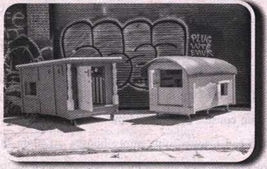题目内容
Task I. Read the first 3 paragraphs and fill in the blanks.
a(n) 1. one — bamboo,grass,
about the school〈 a(n)2.track leading to it far from students,home
School life〈 no electricity,no 3.,
no electricity,no 3., no about the class〈 textbooks,no equipment
experiment — The 4. mixture made the students jump out of the windows.
Task I. 1. bush 2. muddy 3. water 4. bubbling

练习册系列答案
相关题目
